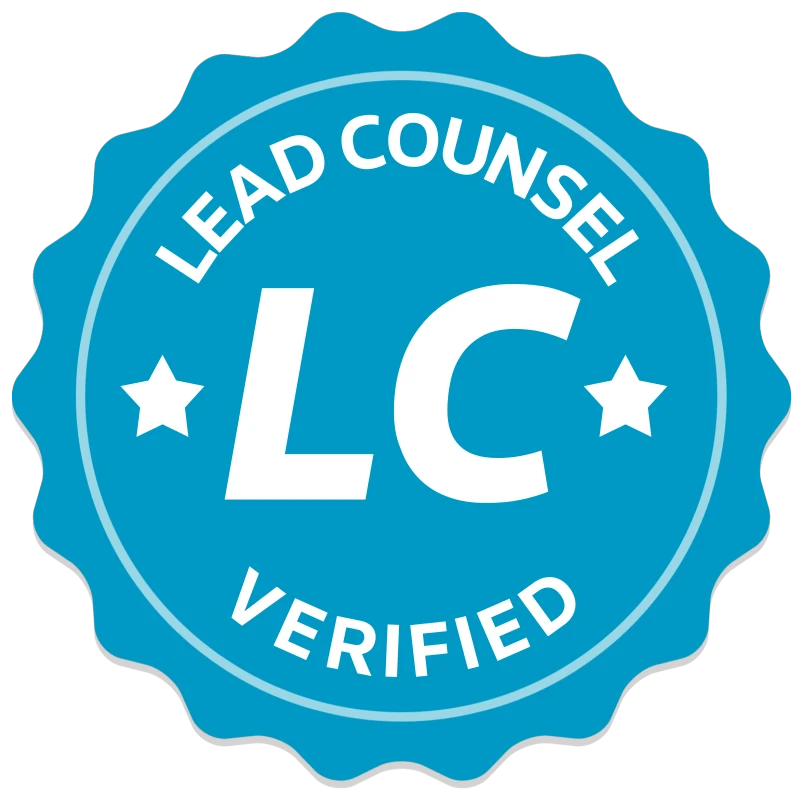
Litigation
Litigation refers to the formal legal procedure that unfolds when two or more parties find themselves embroiled in a legal dispute and turn to the judicial system for resolution. It involves a sequence of structured legal actions undertaken by individuals, businesses, or entities with the goal of resolving conflicts, pursuing remedies, or upholding their legal entitlements.
The litigation process typically kicks off with the initiation of a lawsuit by the filing of a complaint or claim. Subsequently, both sides engage in a process of discovery to collect evidence, followed by the presentation of their case before a judge or jury in a courtroom setting.
- Civil Litigation:
Civil litigation is the most common form of litigation. In this article, our primary focus will be on civil litigation, as it serves as the foundational framework for resolving a multitude of legal disputes across various domains. It encompasses a wide range of disputes outside of the criminal realm.
It includes personal injury cases, contract disputes, employment conflicts, property disputes, and more. In civil litigation, one party, known as the plaintiff, seeks a legal remedy or compensation from another party, the defendant, for alleged harm or loss.
- Criminal Litigation:
Criminal litigation pertains to legal actions taken against individuals or entities accused of committing criminal offenses. This form of litigation aims to establish guilt and determine the appropriate penalties for the accused. It involves prosecutors representing the government and defense attorneys advocating for the accused. - Commercial Litigation:
Commercial litigation deals with legal disputes within the business and commercial sectors. These cases often involve contract breaches, business torts, intellectual property disputes, and shareholder conflicts. The resolution of commercial litigation can have significant financial implications. - Employment Litigation:
Employment litigation centers around disputes between employees and employers. Common issues include wrongful termination, workplace discrimination, wage and hour disputes, and workplace harassment. Legal action in this context seeks to protect employees’ rights and interests. - Real Estate Litigation:
Real estate litigation pertains to disputes involving property and real estate transactions. This may encompass issues such as boundary disputes, breach of contract in real estate deals, landlord-tenant disputes, and zoning conflicts. Legal resolution is often needed to clarify property rights. - Medical Malpractice Litigation:
Medical malpractice litigation arises when individuals believe they have received substandard medical care, resulting in injury or harm. These cases focus on holding healthcare professionals or facilities accountable for negligence or medical errors.
Each form of litigation serves a unique purpose and addresses specific legal matters. Understanding these categories helps individuals and organizations navigate the legal system when disputes arise.
For a free legal consultation, call 404-951-3513
Personal Injury Case and Statute of Limitations
Personal injury cases involve individuals seeking compensation for injuries resulting from accidents or negligence. The statute of limitations is a crucial aspect, as it dictates the time frame within which you can file a lawsuit. Failure to do so within this period may result in your case being dismissed. This deadline varies by state and the type of personal injury.
Common Types of Personal Injury Cases
Personal injury cases can take many different forms, each with their own unique set of circumstances.

Click to contact our personal injury lawyers today
1. Car accidents
One of the most common types of personal injury cases is car accidents. These accidents can result in severe injuries that require extensive medical treatment and rehabilitation.
Complete a Free Case Evaluation form now
2. Medical Malpractice
Another form of personal injury case is medical malpractice, which occurs when a healthcare professional’s negligence leads to harm or injury to a patient.
3. Slip and Fall Incidents
Slip and fall incidents are also a common type of personal injury case. These occur when someone is injured due to hazardous conditions on someone else’s property.
It is important to seek legal help if you believe you have a personal injury case, as you may be entitled to compensation for your injuries and other damages. Car accidents, in particular, are a frequent source of personal injury claims. These cases often revolve around issues such as negligence, liability, and the severity of injuries sustained.
How to Govern Personal Injury
Personal injury is a serious issue that affects many individuals every year. To govern personal injury effectively, several steps need to be taken.
- First and foremost, creating and implementing legislation that protects individuals and ensures their safety is crucial. This legislation should include clear guidelines on workplace safety, road safety, and consumer protection.
- Additionally, enforcing these laws with strict penalties for violations will further deter irresponsible behavior that may lead to personal injuries. Another vital aspect of governing personal injury is promoting awareness and education.
- By educating the public on the common causes of personal injury and providing resources and information on prevention measures, individuals can take proactive steps to protect themselves.
- Creating a system to investigate and address personal injury claims is essential. This system should provide a fair and efficient process for victims to seek compensation and justice.
Effective governance of personal injury requires a combination of legislation, enforcement, education, and a system that supports victims in seeking justice.
Hire a Personal Injury Lawyer or Personal Injury Attorney
It’s crucial to seek professional legal representation when pursuing a personal injury claim. A qualified personal injury lawyer or attorney can help you understand your rights, assess the strength of your case, and guide you through the legal process. They can also provide invaluable assistance in negotiations and litigation.
Negotiation Necessary in a Personal Injury Case
Before many personal injury cases go to trial, there is a negotiation process. This step often involves discussions with insurance companies and the defendant’s legal team. Effective negotiation can lead to a settlement, saving time and resources while ensuring fair compensation for your injuries.

Personal Injury Case Ends Up in Litigation
While many cases settle through negotiation, some proceed to litigation. When a personal injury case ends up in litigation, it means that the parties involved were unable to reach a settlement agreement through negotiation or mediation. This means filing a complaint and preparing for a trial. Litigation can be time-consuming and expensive, as it involves extensive preparation, filing court documents, and attending hearings or trials.
Both sides will present evidence and arguments to support their claims, and the judge or jury will ultimately make a decision based on the facts and applicable law. While litigation is often seen as a last resort, it can provide a final resolution to a personal injury case when settlement negotiations have failed.
Personal Injury Litigation Process
Personal injury litigation is a legal process that seeks compensation for individuals who have suffered physical or psychological harm due to the negligence or intentional actions of another party.
- The process usually starts with a thorough investigation into the circumstances surrounding the injury. This involves gathering evidence, speaking to witnesses, and consulting with experts to determine liability and damages.
- Once the evidence is collected, a complaint is filed, outlining the claims against the responsible party.
- The defendant is then served with the complaint and has the opportunity to respond within a specified period.
- The litigation process may involve negotiations, mediation, or arbitration to reach a settlement.
- If a settlement cannot be reached, the case proceeds to trial, where both parties present their arguments, and a judge or jury decides the outcome.
- If successful, the injured party will be awarded compensation for medical expenses, lost wages, pain, and suffering.
It is essential to have experienced personal injury lawyers to navigate the complex legal process and maximize the chances of a favorable outcome.
What to Expect if Your Case Goes to Litigation
If your case goes to litigation, be prepared for a lengthy and expensive process. Litigation can take months or even years to resolve, as both parties gather evidence, file motions, and engage in court proceedings. You can expect to have multiple court hearings, where each party presents their arguments, and a judge or jury makes a decision. During this time, you will incur legal fees for hiring an attorney to represent you in court. These fees can quickly escalate, especially if expert witnesses or multiple attorneys are involved.
Additionally, litigation can be emotionally draining and stressful, as you must navigate the complexities of the legal system and face uncertainty about the outcome of your case. However, litigation also allows for a thorough examination of the facts and legal issues, presenting an opportunity to present your strongest arguments and potentially achieve a favorable outcome. It is important to carefully consider the potential benefits and drawbacks of litigation, as well as explore alternative dispute resolution methods before deciding to pursue litigation.

Financial Recovery in a Personal Injury Litigation
Financial recovery in personal injury litigation is an essential aspect for the victim to rebuild their life after experiencing physical, emotional, and financial hardships. When pursuing a personal injury claim, the injured party seeks compensation for medical expenses, lost wages, pain and suffering, and other related damages.
- This financial recovery aims to restore the victim’s financial stability and cover the expenses incurred as a result of the injury. It provides the necessary funds to cover medical bills, rehabilitation costs, and any ongoing treatment needed.
- It can help compensate for the loss of income due to the inability to work during the recovery period.
- Financial recovery assists in addressing the emotional distress experienced by the victim and ensures they receive the necessary support to overcome the traumatic event.
Overall, financial recovery is crucial in personal injury litigation as it enables the injured party to regain their financial footing and move forward with their lives.
Need an Attorney?
In some personal injury cases, it may not be necessary to hire an attorney. However, it is generally advisable to have legal representation. While there are instances where individuals can handle their own claims, the legal process can be complex and overwhelming for someone without experience in this area. A personal injury attorney has the knowledge and expertise to navigate through the intricacies of the legal system, ensuring that the injured party receives fair compensation for their damages.
They are well-versed in the laws and regulations surrounding personal injury cases and can effectively negotiate with insurance companies or opposing parties. Moreover, an attorney can provide valuable guidance and support, helping the injured individual to understand their rights and options. Having legal representation can significantly increase the chances of a successful outcome in a personal injury case, providing the injured party with the necessary resources to recover and move forward.

Conclusion
Litigation in a personal injury case is a complex and multi-stage process. It involves careful investigation, negotiation, and, in some cases, a trial. The goal is to ensure that those who have suffered injuries due to the negligence of others receive fair compensation for their losses.
FAQs
- Is litigation the only way to resolve a personal injury case? Litigation is one way to resolve a personal injury case, but many cases are settled out of court through negotiations.
- How long does the litigation process typically take? The duration of litigation varies widely, depending on the complexity of the case and court availability. It can take several months to several years.
- What is the role of a personal injury attorney in litigation? Personal injury attorneys represent the injured party, guiding them through the legal process, negotiating on their behalf, and presenting their case in court if necessary.
- Can I appeal a verdict in a personal injury case? Yes, if you are dissatisfied with the verdict, you can file an appeal to have the case reviewed by a higher court.
- What happens if a settlement is reached during litigation? If a settlement is reached at any point during litigation, the case is resolved, and no trial is necessary.
Call or text 404-951-3513 or complete a Free Case Evaluation form









